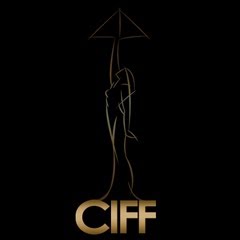| Year | Best film | Best Director | Best Actor | Best Actress |
|---|
1991
15th | The Object of Beauty | Michael Lindsay-Hogg
for The Object of Beauty | Joaquim de Almeida
for Family Portrait | Christiane Heinrich
for Suspicion |
1992
16th | Those Left Behind | Michael Apted
for Thunderheart | Ole Lemmeke
for The Naked Trees | Xiu Jingshuang
for Those Left Behind |
1993
17th | Curfew | Nabil Maleh
for The Extras | Andrzej Seweryn
for Amok | Marina Neyolova
for You Are My Only One |
1994
18th | Colonel Chabert | Yves Angelo
for Colonel Chabert | Nour El-Sherif
for A Hot Night | Laila Elwi
for More Love, Less Violence |
1995
19th | The Flor Contemplacion Story | Sergei Masloboischikov
for Josephine, the Singer and the Mice People | Stephen Rea
for Citizen X | Nora Aunor
for The Flor Contemplacion Story |
1996
20th | A Girl Called Apple | Pantelis Voulgaris
for Akropol | Abu Bakr Ezzat
for The Woman and the Hatchet | Julia Jäger
for Outside Time |
1997
21st | The Chambermaid on the Titanic | Bigas Luna
for The Chambermaid on the Titanic | Davor Janjić
for Outsider | Reem Al-Turki
for Ceremonial Wedding Dress |
1998
22nd | Malli | Santosh Sivan
for Malli | Paschalis Tsarouhas
for Vasiliki | Mei Ting
for A Time to Remember |
1999
23rd | A Major Inconvenience | Martin Šulík
for Prague Stories(Segment: "Pictures from the Visit") | Mahmoud Abdel Aziz
for Pleasure Market | Pegah Ahangarani
for The Girl in the Sneakers |
2000
24th | Sigh | Roch Stéphanik
for Stand-by | Zhang Guoli
for Sigh | Xu Fan
for Sigh
Dominique Blanc
for Stand-by |
2001
25th | Pauline and Paulette | Sinișa Dragin
for Everyday God Kisses Us on the Mouth | Paul Freeman
for Morlang | Niki Karimi
for The Hidden Half |
2002
26th | The Last Blues | Mrinal Sen
for My Land | Ahmed Zaki
for His Excellency the Minister | Nandita Das
for My Land
Katayoun Riahi
for The Last Supper |
2003
27th | The King | Liang Shan
for The Father | Song Guofeng
for The Father | Sandrine Kiberlain &
Sylvie Testud
for Sole Sisters |
2004
28th | Guardians of the Clouds | Héctor Olivera
for Ay Juancito | Adrián Navarro
for Ay Juancito
Sofocles Peppas
for Dust | Eszter Bagaméri
for Guarded Secrets
Nelly Karim
for My Soul Mate |
2005
29th [19] | Mother of Mine | Klaus Härö
for Mother of Mine | Bujar Lako
for Magic Eye | Maria Lundqvist
for Mother of Mine |
2006
30th [20] | The Road | Khosro Masumi
for Somewhere Too Far | Nicolás Mateo
for Speed Begets Oblivion | Zhang Jingchu
for The Road |
2007
31st [21] | Intimate Enemies | Florent Emilio Siri
for Intimate Enemies | Albert Dupontel
for Intimate Enemies | Marina Magro
for Opera
Tatyana Lyutaeva
for Full Scope |
2008
32nd [22] | Return to Hansala | Pernille Fischer Christensen
for Dancers | Juan Diego Botto
for El Greco | Yolande Moreau
for Séraphine |
2009
33rd [23] | Letters to Father Jacob | Mona Achache
for The Hedgehog | Fathy Abdel Wahab
for The Nile Birds
Subrat Dutta
for Madholal Keep Walking | Karolina Piechota
for Splinters |
2010
34th [24] | Lust | Svetoslav Ovtcharov
for Voice Over | Amr Waked &
Alessandro Gassman
for The Father and the Foreigner | Isabelle Huppert
for Copacabana
Sawsan Badr
for Lust |
2012
35th [25] | Rendez-vous in Kiruna | | Marian Dziędziel
for The Fifth season of the Year | Vanessa Di Quattro
for Breach in the Silence |
2014
36th [26] | Melbourne | | Khaled Abol Naga
for Eyes of a Thief | Adèle Haenel
for Love at First Fight |
2015
37th | Mediterranea | Dagur Kari
for Virgin Mountain | Koudous Seihon
for Mediterranea | Louise Bourgoin
for I Am a Soldier |
2016
38th | Mimosas | Licínio Azevedo
for The Train of Salt and Sugar | Shakib Ben Omar
for Mimosas | Nahed El Sebai
for A Day for Women |
2017
39th [27] | The Intruder | Laura Mora
for Killing Jesus | Raouf Ben Amor
for Tunis By Night | Diamand Bou Abboud
for Insyriated |
2018
40th [28] | A Twelve-Year Night | Phuttiphong Aroonpheng
for Manta Ray
Sergei Loznitsa
for Donbass | Sherif Desoky
for Night/Ext | Zsófia Szamosi
for One Day |
2019
41st [29] | I Am No Longer Here | Bas Devos
for Ghost Tropic | Juan Daniel Garcia Trevino
for I Am No Longer Here | Judy Ann Santos
for Mindanao |
2020
42nd [30] | Limbo | Ivan I. Tverdovsky
for Conference | Yulian Vergov
for German Lessons | Elham Shahin
for Curfew
Natalya Pavlenkova
for Conference |
2021
43rd [31] | The Hole in the Fence | Laura Samani
for Small Body | Mohamed Mamdouh
for Abu Saddam | Swamy Rotolo
for A Chiara |
2022
44th [32] | Alam | Emmanuelle Nicot
for Love According to Dalva | Maher Elkheir for The Dam
Mahmoud Bakri for Alam | Zelda Samson
for Love According to Dalva |
2024
45th [33] [34] | The New Year That Never Came | Natalia Nazarova
for Postmarks | Lee Kang-sheng for Blue Sun Palace
Maxim Stoyanov for Postmarks | Yara de Novaes
for Malu |

